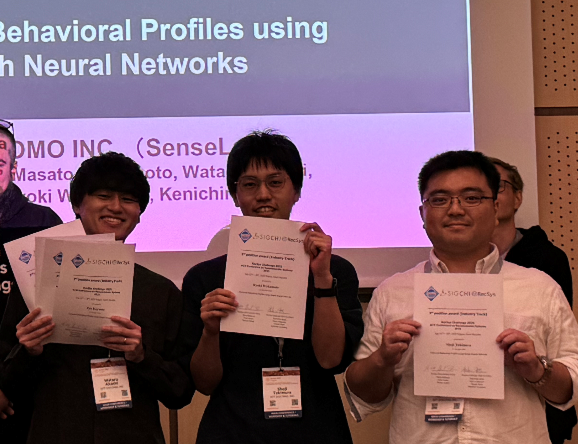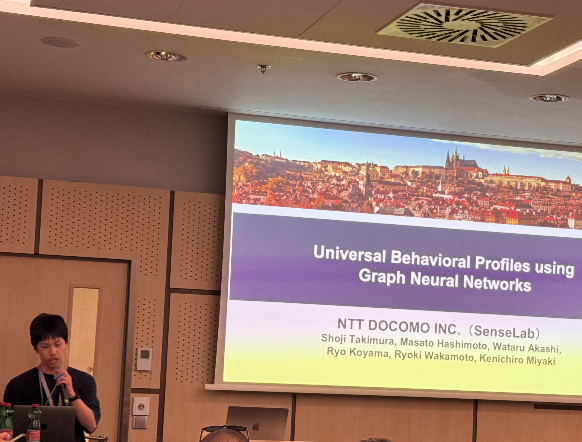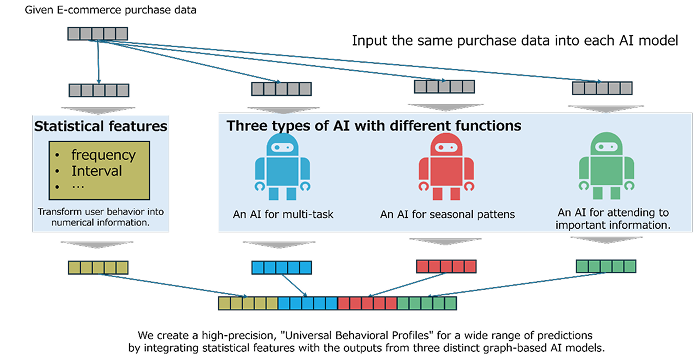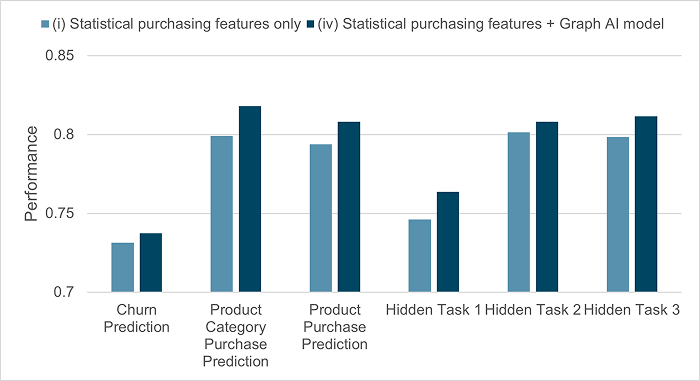Press Releases
September 26, 2025
NTT DOCOMO Earns Third Place Worldwide in the “RecSys Challenge 2025”
TOKYO, JAPAN, September 26, 2025 --- NTT DOCOMO, INC. announced today that it has achieved third place globally in the RecSys Challenge 2025, a premier international data science competition held as part of the ACM Conference on Recommender Systems (RecSys)*1.
The RecSys Challenge brings together leading researchers and engineers from around the world to tackle real-world business problems using advanced data science and machine learning techniques. A total of 416 teams participated in this year's competition, which ran from March 10 to June 30, 2025. The award ceremony and technical presentations were held during the RecSys Conference 2025 in Prague, Czech Republic, from September 22 to 26.


The 2025 challenge focused on addressing the rising costs of developing and maintaining AI models by creating Universal Behavioral Profiles (UBPs)—generalized user purchasing behavior profiles that can be applied across multiple use cases, such as predicting product purchases or customer churn on e-commerce platforms.
DOCOMO developed a hybrid solution that combined statistical features derived from user purchase frequency, intervals, and other behavioral patterns with graph-based AI models designed to capture complex relationships between users and products. By integrating these complementary approaches, the company achieved significantly higher predictive accuracy across all six evaluation tasks—three open and three hidden—demonstrating the robustness and versatility of its method.
In August 2025, DOCOMO also received two special awards at the KDD CUP 2025*2, another world-leading data mining competition organized by ACM SIGKDD. The theme involved generating correct answers for image-based queries. DOCOMO modified image-generation AI models to incorporate external information sources such as image and text search, thereby preventing incorrect responses and delivering top-tier performance in two of the four assigned tasks.
Details of DOCOMO's approaches for both competitions will be published on the DOCOMO Developer Blog*3 around December 2025.
With a large team of data scientists and extensive expertise in big data analytics, DOCOMO continues to apply cutting-edge AI research to address a wide range of business challenges, from developing docomo Sense®*4, a customer intelligence engine for advanced ad targeting, to building large-scale cross-service recommendation engines*5, implementing AI-powered recommendations across both online and offline retail experiences*6, and expanding applications in domestic and international digital out-of-home (DOOH) advertising*7,*8. Leveraging its globally recognized strengths in problem design and big data analysis, DOCOMO will further advance innovative AI technologies to enhance personalized customer experiences and deliver new value to society.
- A data analysis competition held at the RecSys Conference 2025, an international academic conference organized by SIGCHI (Special Interest Group on Computer-Human Interaction), a subcommittee of the ACM (Association for Computing Machinery) focusing on Human-Computer Interaction (HCI) in the field of computer science.
- A data analysis competition held at the KDD Conference, an international academic conference organized by SIGKDD (Special Interest Group on Knowledge Discovery and Data Mining), a subcommittee of the ACM (Association for Computing Machinery) focusing on data science in the field of computer science.
 https://nttdocomo-developers.jp/ (Japanese only)
https://nttdocomo-developers.jp/ (Japanese only) https://ssw.web.docomo.ne.jp/marketing/strengths/sense/ (Japanese only)
https://ssw.web.docomo.ne.jp/marketing/strengths/sense/ (Japanese only)- NTT DOCOMO Technical Journal VOL.33 NO.1 (Japanese only)
https://www.docomo.ne.jp/corporate/technology/rd/technical_journal/bn/vol33_1/002.html - NTT DOCOMO Technical Journal VOL.25 NO.4
https://www.docomo.ne.jp/english/corporate/technology/rd/technical_journal/bn/vol25_4/001.html - Announced on July 29, 2024: DOCOMO, DatVietVAC and DatVietOOH to Form JV, “Vie BOARD,” for Digital Out-Of-Home Business Supported with Location-based Data in Vietnam.
https://www.docomo.ne.jp/english/info/media_center/pr/2024/0729_00.html
Appendix
Details of the RecSys Challenge 2025 Theme
- Theme: Universal Behavioral Modeling
In the 2025 RecSys Challenge, participants were tasked with building Universal Behavioral Profiles (UBPs)—generalized user purchase behavior profiles based on e-commerce activity logs. These UBPs were evaluated across six prediction tasks designed to test their versatility and accuracy.
The primary user activity data provided included:
- Purchase history
- Cart addition history
- Cart removal history
- Page visit history
- Search history
In addition, product metadata was supplied.
Using these datasets, participating teams built UBPs and competed in the following six tasks:Open Tasks
- Churn Prediction: Predict whether an active user (with at least one prior purchase) would make no further purchases in the following 14 days.
- Product Purchase Prediction: Predict the likelihood that an active user would purchase one of 100 specified products within 14 days.
- Category Purchase Prediction: Predict the likelihood that an active user would purchase from one of 100 specified product categories within 14 days.
Hidden Tasks
In addition to the open tasks, three hidden tasks were prepared by the organizers to evaluate whether UBPs maintained general applicability beyond the open tasks.Figure 1. Competition Theme Overview 

- DOCOMO's Award-Winning Approach
DOCOMO developed a hybrid solution that combined statistical purchase features with three graph-based AI models, as illustrated in Figure 2. This approach was based on the hypothesis that by systematically organizing and integrating diverse user behavior data, it would be possible to capture users' essential characteristics that could be commonly applied across different tasks—such as churn prediction and purchase prediction.


Figure 2. Outline of the Award-Winning Approach For the statistical purchase features, DOCOMO created variables that specifically captured a wide range of behavioral statistics, such as the intervals between events like purchases or cart additions, and the number of items purchased. These features contributed not only to addressing short-term tasks such as churn and purchase prediction, but also to identifying long-term behavioral trends, thereby achieving high predictive accuracy across both public and hidden tasks.
In addition, to more precisely capture the relationships between users and products, as well as among products themselves, DOCOMO developed three types of graph-based AI models, each serving a different role:- An AI model capable of handling diverse prediction tasks
- An AI model designed to capture seasonal trends
- An AI model that focuses on key information to improve accuracy
By combining the statistical purchase features with the outputs of these three graph-based AI models in a hybrid approach, DOCOMO confirmed significant improvements in predictive accuracy across all six tasks compared with using statistical features alone (see Figure 3)


Figure 3. Evaluation Results for Each Task


